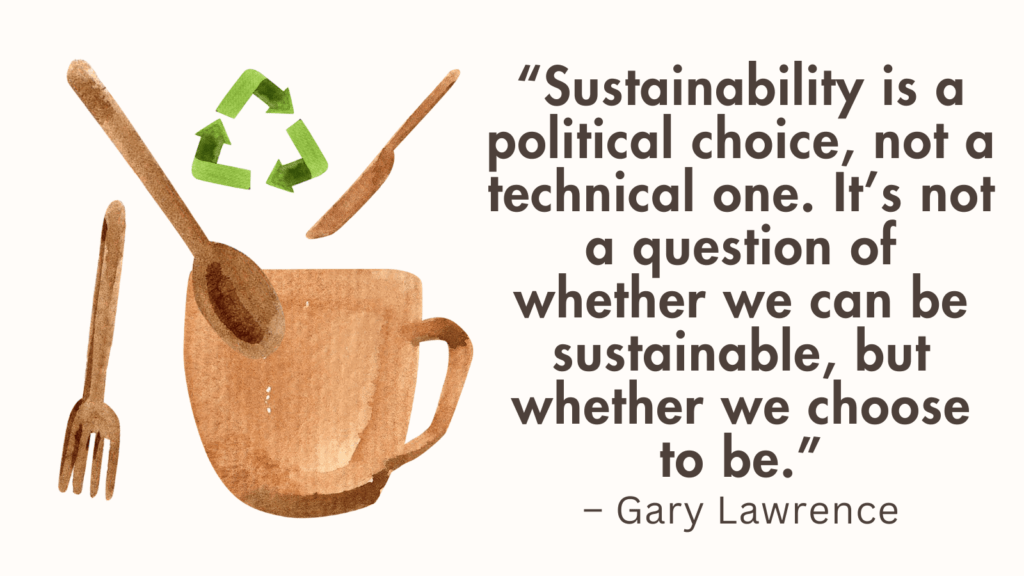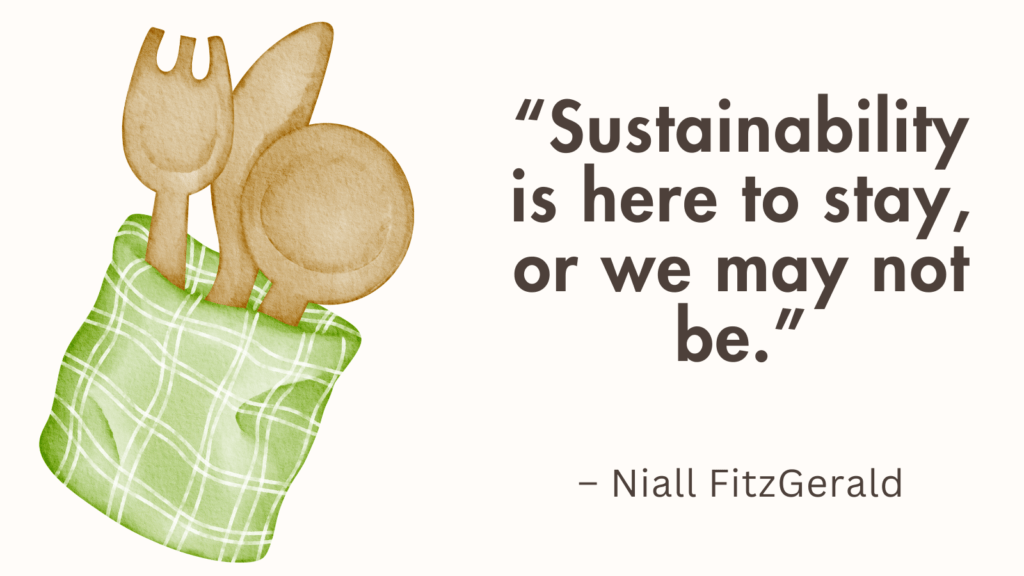In this post, you’re going to learn how to shop sustainably on a budget.
What Does It Mean To Shop Sustainably?
Sustainable shopping refers to the practice of making conscious and responsible choices when purchasing goods and services.
It involves considering the environmental, social, and economic impact of the products we buy.
Sustainable shopping aims to minimize harm to the environment, protect human rights and labor conditions, support local communities and businesses, and promote ethical production and consumption practices.
It involves buying products that are made from eco-friendly materials, produced with minimal waste and energy, and sourced ethically.
Sustainable shopping also involves reducing waste by opting for durable products, repairing and repurposing items, and recycling or properly disposing of goods at the end of their lifecycle.
How to Shop Sustainably on a Budget?
Shopping sustainably on a budget is possible with a little planning and creativity. Here are some tips to help you shop sustainably without breaking the bank:
1. Make a shopping list
Plan your purchases in advance by making a list of the items you really need.
Stick to the list to avoid impulse buying and reduce waste.
2. Buy second-hand
Thrift stores, consignment shops, online marketplaces, and yard sales are excellent places to find gently used clothing, furniture, electronics, and other items at a fraction of the cost.
This not only saves money but also extends the lifespan of products.
3. Look for eco-friendly brands and products
Many brands now offer sustainable alternatives at affordable prices. Look for certifications like organic,
Fair Trade, or cruelty-free, and check for eco-friendly materials and packaging.
4. Choose quality over quantity
Invest in high-quality products that are designed to last longer.
While they may have a higher upfront cost, they will save you money in the long run as you won’t need to replace them as frequently.
5. DIY and upcycle
Get creative and make your own products or repurpose items you already have.
For example, you can create homemade cleaning solutions, refashion old clothes, or turn jars into storage containers.
There are countless tutorials and resources available online to help you get started.
6. Buy in bulk
Purchasing items in bulk reduces packaging waste and is often more cost-effective.
Look for bulk food stores or co-ops where you can bring your own reusable containers to fill up on staples like grains, nuts, and spices.
Related: How To Eat Sustainably On A Budget?
7. Avoid fast fashion
Fast fashion is inexpensive but comes at a high environmental and social cost.
Instead, focus on building a sustainable wardrobe by investing in timeless pieces, shopping during sales or clearance events, and swapping clothes with friends.
8. Consider the lifecycle costs
Before making a purchase, think about the environmental impact of the product throughout its lifespan.
For example, energy-efficient appliances may have a higher upfront cost but can save you money on utility bills in the long run.
9. Embrace minimalism
Adopting a minimalist mindset can help you prioritize quality over quantity and reduce unnecessary spending.
Focus on decluttering and being more mindful of what you bring into your life.
Conclusion
Every small step towards sustainable shopping makes a difference.
By being mindful of your purchases and making conscious choices, you can shop sustainably on a budget.
FAQ
How can I determine if a brand or product is sustainable?
Determining if a brand or product is sustainable can involve researching and considering various factors.
Look for transparency in the brand’s supply chain and their commitment to social and environmental responsibility.
Check if they use eco-friendly materials, have fair labor practices, and support local or global sustainability initiatives.
Look for certifications or labels that validate their sustainable claims.
Are sustainable products more expensive?
Sustainable products can sometimes be more expensive upfront due to their higher quality and ethical production practices.
However, they often have a longer lifespan, which can result in cost savings in the long run.
Additionally, as demand for sustainable products increases, more affordable options are becoming available.
What are some eco-friendly materials to look for when shopping?
When shopping for eco-friendly materials, look for organic cotton, hemp, bamboo, linen, recycled fabrics, and materials made from renewable resources like Tencel or Modal.
Avoid synthetic materials like polyester and nylon, as they are derived from non-renewable sources and have a higher environmental impact.
Where can I find sustainable clothing options?
Sustainable clothing options can be found in various places.
Look for local boutiques and stores that specialize in eco-friendly fashion.
Online platforms and marketplaces specifically dedicated to sustainable brands also exist.
Thrifting, swapping clothes with friends, or participating in clothing rental services are other sustainable alternatives.
How can I reduce packaging waste when shopping?
To reduce packaging waste when shopping, consider bringing your own reusable bags and containers.
Opt for products with minimal packaging or packaging made from recyclable or compostable materials.
Buying in bulk can also help minimize packaging waste.
Consider purchasing products from zero-waste stores or shops that offer refillable options.
Are there any specific certifications or labels to look for when shopping sustainably?
When shopping sustainably, there are several certifications and labels to look for, such as Fairtrade, Global Organic Textile Standard (GOTS), Forest Stewardship Council (FSC), and the Certified B Corporation label.
These certifications ensure that the brand or product meets specific sustainability criteria.
How can I practice sustainable gift giving?
Sustainable gift-giving can involve choosing environmentally friendly gifts, such as experiences instead of physical items.
Consider giving handmade or upcycled gifts, supporting local artisans, or donating to charitable causes in the name of the recipient.
Wrapping gifts in reusable or recyclable materials like fabric or Furoshiki wraps can also reduce waste.
Related: Does Sustainable Mean Eco Friendly?

Garden Cart
*As an Amazon Associate I earn from qualifying purchases, at zero cost to you, if you click through the link and finalize a purchase.





